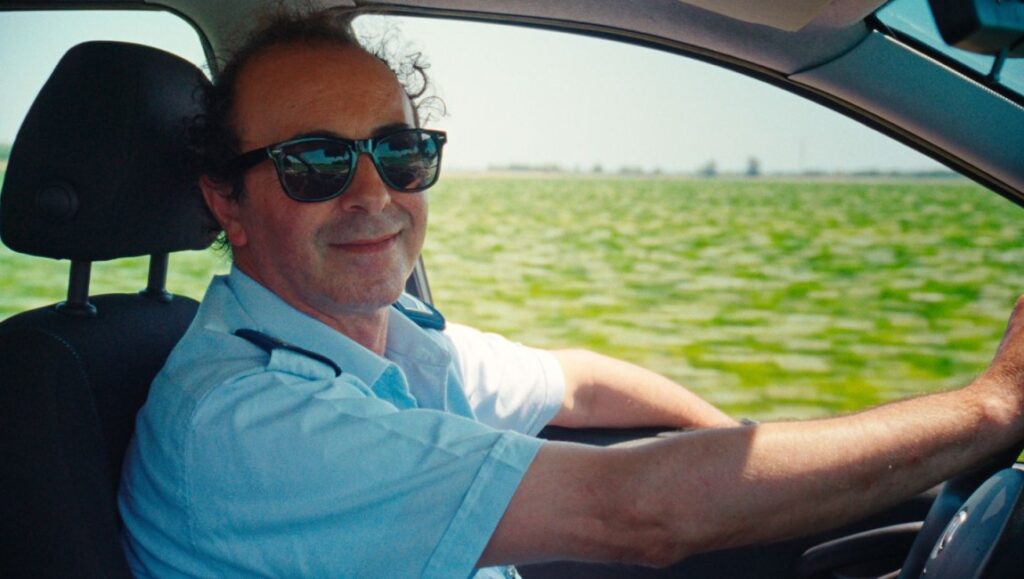There’s a relaxed tone to Alessandro Comodin’s The Adventures of Gigi the Law — one that’s so lackadaisical the film often threatens to stall whenever there’s a moment of inactivity, which constitutes about 90% of the motion picture’s runtime. Take your pick for the film’s most thrilling set piece: perhaps it’s when our belligerent central protagonist, police officer Pier Luigi Mecchia, gets in a verbal altercation with his next door neighbor about trimming his overgrown trees, and then later enters into another passive-aggressive argument with him that same day — or maybe that actually occurs later that week, as the film never establishes a clear, linear temporality in relation with its character’s actions — wherein Gigi, at first, offers to cut them down, right before immediately doubling back on his word and, sometime later, publicly smears his good name. Or maybe the most tantalizing moments comes when Luigi is first introduced to a young new dispatcher named Paola who provides him with step-by-step directions to a domestic dispute that ends up being a false alarm? Even when something “exciting” finally happens — a little girl throws herself under an oncoming train — there’s a stark monotony to the way people react and process the world around them, or at least in regards to this specific cultural and sociopolitical region (northern Italy). The unnamed girl’s death is never resolved, nor are the countless other faceless suicides that follow in the aftermath; Luigi, through it all, keeps on driving around town, spewing the same old lame double-entendres, acting like everything is okay when it very clearly isn’t.
While there’s a strong thematic throughline within this rather carefully structured docudrama, one that reflects a clear personal understanding of these modest people and their wistful way of life — Luigi is Comodin’s real-life uncle, who serves in the same village Comodin was raised in — it’s hard to ever truly embrace or pin down just what exactly the film is going for on a tonal level. There’s a slightly romantic tinge to Luigi’s outlook on life, but one that’s constantly challenged and even mocked; he’s openly told how little his fellow colleagues like him, yet he’s still granted a heroic ending and girlfriend half his age (it may/may not all be a dream, but those thinly-conceived stakes have little functionality outside of pure narrative contrivance). A general sense of ambivalence takes hold, which fits the film’s temperament far better than any of the other genre-adjacent non-starters that are attempted before; Luigi keeps going because that’s all he really can do to make sense of it all. So drive around he does; in fact, it’s all he ever seems to do! He swaggers about in his beat-up police cruiser, always shot at medium-length in long, unbroken takes that simultaneously document the desolate Italian countryside his fellow citizens inhabit; in a sense, you can call this a stealth landscape film, one with a lot more movement than most. But even a label as fluid as that one doesn’t really do The Adventures of Gigi the Law much justice, as it comfortably exists outside of the strict borders of such easy classification. For those willing to take the ride, there are few adventures from this year that will seem this equally (and paradoxically) tedious and tantalizing.
Published as part of Locarno Film Festival 2022 — Dispatch 1.


Comments are closed.